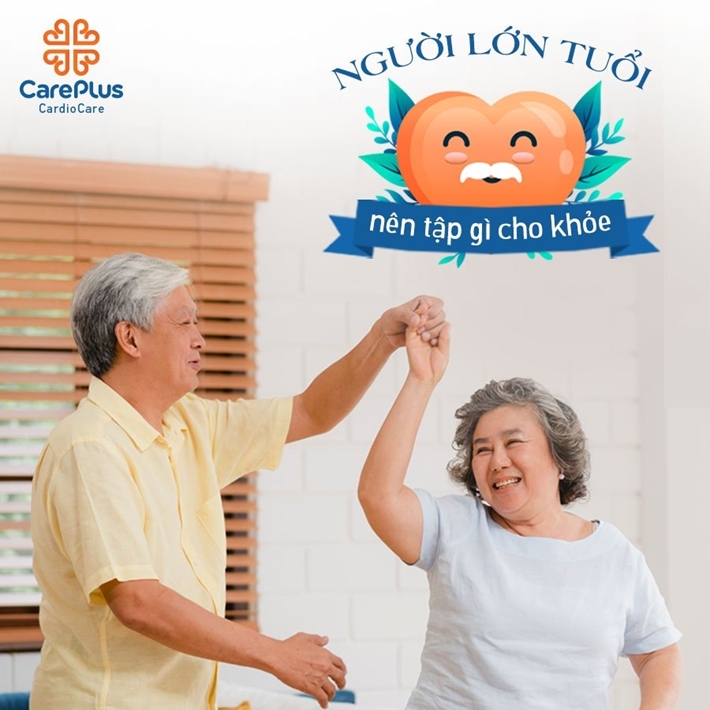Physical activity for older adults to stay healthy
The benefits of exercise for heart health are well known. However, for the elderly, there are often problems that make them hesitate to exercise, such as joint pain, fear of heavy exercise that is too easy to get tired, limited ability to exercise, etc.

6/9/2021 11:29:37 PM
The elderly, if they know how to choose a good sport, will still ensure good health maintenance, optimism, and quality of life. Before deciding to practice or pursue a sport, older adults should check their health status and consult a specialist. Here are simple rules to remember to do this:
1️. It is necessary to consult a cardiologist and a musculoskeletal doctor before exercising.
Some specific diseases will have special notes when practising. Cardiology doctors can also consider assessing exercise capacity to find the right sport for each person.
2️. If you are not restricted because of cardiovascular or joint problems, you can continue activities such as walking, cycling with less intensity than before: walking slower, shorter time, walking on alternate days, etc.
3️. When you have joint problems, you can choose water sports. Being active in water reduces the body's burden on joints by about half. Swimming, water walking, water aerobics are excellent alternatives to land sports.
4️. Adapted to local sports. Tennis, table tennis, badminton are sports that, if played according to the standards, will have to run a lot, affecting the joints. Older adults can choose to play standing (or sitting on a firm chair) to play these sports, ensuring age-appropriate physical activity. Doubles can be played for more fun and more extended playtime. Relatives can volunteer to collect balls and bridges so that the elderly feel cared for and served.
5️. Don't forget sports that train muscles and flexibility, such as yoga, light exercise. Yoga helps ensure flexible joints and exercises muscle groups. Resistance training with light weights (1kg) can help muscles regularly work, avoiding muscle atrophy and muscle loss.
6️. Finally, the essential rule is "yes is better than nothing". Older adults, if they can still walk lightly, do odd jobs around the house. They should still try to do it rather than sitting still. Maintaining a certain level of activity is also a "self-check" that helps detect early symptoms of chest pain and shortness of breath when exercising, which are suggestive signs of heart failure and coronary artery disease that may not be recognized out if the elderly are less active.